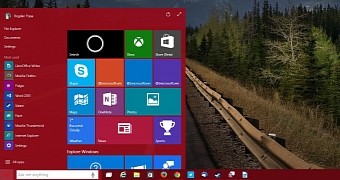Microsoft will offer Windows 10 as a free upgrade within the first year after launch for PCs powered by Windows 7 or Windows 8.1, and everyone expects the market share of the new operating system to skyrocket very fast in the first months of availability.
Obviously, a free upgrade for Windows 10 is pretty good news for users worldwide, but it's not all just milk and honey for the rest of the Windows ecosystem.
Partners believe that offering Windows 10 free of charge to computers that are powerful enough to run Windows 7 and Windows 8.1 could have a strong impact on new PC sales, as the majority of customers would upgrade their devices instead of buying a new one.
In the past, whenever Microsoft introduced a new version of the Windows operating system, manufacturers worldwide expected to record increased new PC sales because the new software usually required upgraded hardware, and customers rushed to buy computers that could cope with requirements.
Unchanged system requirements
But this time, Windows 10 has pretty much the same system requirements as Windows 7 and Windows 8.1, so computers that have been purchased in the last 5 or 6 years should all be able to run the new operating system pretty flawlessly.
Here are the system requirements for Windows 10, as provided by Microsoft for the Windows Insider program:
Processor: 1 gigahertz (GHz) or faster RAM: 1 gigabyte (GB) (32-bit) or 2 GB (64-bit) Free hard disk space: 16 GB
And here are the system requirements for Windows 8.1:
Processor: 1 gigahertz (GHz) or faster with support for PAE, NX, and SSE2 RAM: 1 gigabyte (GB) (32-bit) or 2 GB (64-bit) Hard disk space: 16 GB (32-bit) or 20 GB (64-bit)
Surprisingly, Microsoft already promises that, together with Windows 10, manufacturers would bring out a new wave of products, including desktops, laptops, tablets, and smartphones. Of course, devices would be there, but it still remains to be seen whether customers worldwide would actually buy them.
Obviously, it also comes down to costs, and Microsoft already has a plan to bring more affordable devices to the market, including a Windows 10 with Bing edition that would be offered free of charge to a number of OEMs.

 14 DAY TRIAL //
14 DAY TRIAL //